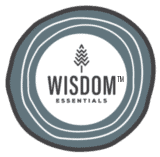CBD Glossary
Bioavailability
The degree and rate at which cannabis (CBD and/or THC) is absorbed by the body’s circulatory system. Smoking and vaping are the most immediate because it goes into your lungs; tinctures and sublingual may take about ten minutes; edibles (capsules, gummies, etc.) can take up to several hours because it has to get through your digestive system which is dependent on how much food you’ve eaten.
Botanicals
Botanicals are plants or plant parts valued for their medicinal or therapeutic properties, flavor, and/or scent. They come from herbs, flowers and seeds. Products made from botanicals that are used to maintain or improve health may be called herbal products, botanical products, or phytomedicines. Botanicals can have many healing and anti-aging properties.
Broad-spectrum
Products labeled “broad spectrum” typically have more than one cannabinoid, but not all that occurs naturally within the hemp plant. An example might be a product that has had the THC removed is considered broad-spectrum. For those who cannot have or do not want any traces of THC in their system, broad-spectrum products are the best choice, though they are not as effective as full-spectrum products.
Cannabidiol (CBD)
Known more affectionately as CBD, cannabidiol is one of the naturally occurring cannabinoids found in cannabis plants. Unlike marijuana or THC, CBD does not produce psychoactive effects.
Cannabigerol (CBG)
A cannabinoid found in cannabis that is the chemical precursor to both THC and CBD. It is known as the ‘parent cannabinoid’ from which other cannabinoids are synthesized and may assist with inflammation, pain, nausea.
Cannabinol (CBN)
A mildly psychoactive phytocannabinoid found only in trace amounts in cannabis. It is produced when THC is metabolized and is, therefore, mostly found only in aged cannabis. CBN has little to no intoxicating effects.
Cannabinoid
One of the diverse chemical compounds found in cannabis that act on the endocannabinoid receptors found throughout the human body. These molecules include the endocannabinoids, which are produced naturally in the body, and phytocannabinoids, which are produced naturally from cannabis. The two most notable cannabinoids in cannabis are THC and CBD, but there are at least 144 different cannabinoids isolated from cannabis, exhibiting varied effects.
CBD oil
A natural essential oil extracted from the flowers and leaves of the cannabis plant. This is the ingredient we use to infuse CBD into our products and formulas.
Endocannabinoid system
Also known as the ECS, this system in the human body maintains homeostasis. In other words, it keeps the body balanced even when there are environmental changes. Receptors for this system are found throughout the entire body and play a part in many bodily functions and responses, such as appetite, stress, sleep, pain, memory, and immune function. Scientists believe that cannabis is effective because phytocannabinoids (or cannabinoids that occur naturally in the cannabis plant) mimic these naturally occurring endocannabinoids.
Essential Oils
Essential oils are the essence of a plant. Inside many plants hidden within the roots, seeds, flowers and bark are concentrated, highly potent chemical compounds. These natural compounds are called essential oils. Essential oils give a plant its scent, protect it from hazardous environmental conditions, and even assist it with pollination, among other important functions and benefits. Essential oils have been used for thousands of years by ancient civilizations across the globe for:
- Aromatherapy
- Personal care
- Healthcare practices
- Beauty treatments
- Food preparation
Some examples of essential oils are lavender, rose, lemon, geranium, chamomile and rosemary.
Full-spectrum
Products labeled “full-spectrum” contain all of the terpenes, cannabinoids, flavonoids, and fatty acids found in hemp. Full-spectrum CBD provides every potential benefit the plant has to offer.
Hemp
A distinct strain of the Cannabis sativa plant that is often grown for industrial use. The hemp that is used in CBD products must contain less than 0.3% THC.
Hemp seed oil
Derived from industrial hemp, hemp seed oil is created by pressing the plant’s seeds. It has no therapeutic benefits but is often used as a dietary supplement and low-saturated-fat cooking oil.
Industrial hemp
Hemp that is grown specifically for the industrial uses of its products. This includes textiles, clothing, biodegradable plastic, food, and medicinal uses (including CBD). Hemp and its products are legal in the U.S. under the Farm Bill as long as they contain less than 0.3% THC.
Marijuana
Female Cannabis sativa plants that produce flowers containing phytocannabinoids which are used for their medicinal and psychoactive properties.
Nootropics
These are supplements that may improve cognitive function. They are a class of substances that can boost brain performance. They are sometimes called cognition enhancers or memory enhancing substances. They do not treat diseases but may have some effects on thinking, memory, or other mental functions.
Nutraceuticals
Nutraceuticals are supplements derived from food sources that are thought to provide health benefits. A nutraceutical product may be defined as a substance, which has physiological benefit or provides protection against chronic disease. Nutraceuticals may be used to improve health, delay the aging process, prevent chronic diseases, increase life expectancy, or support the structure or function of the body.These ingredients are not tested or regulated like pharmaceutical drugs.
Terpenes
Terpenes are aromatic oils that give cannabis (and other plants) their particular aromas and taste. Cannabis terpenes exist in varying proportions based on the strain, giving each its own ‘terpene profile’. The effects of any given terpene may be amplified when it interacts with other compounds (also known as the entourage effect).
Tetrahydrocannabinol (THC)
A phytocannabinoid found in cannabis shown to have some effects on humans and animals. It is responsible for the intoxicating effects –or the ‘high’– associated with marijuana use.
Tincture
A delivery method of cannabis product, typically administered sublingually, that quickly absorbs and distributes throughout the body.
